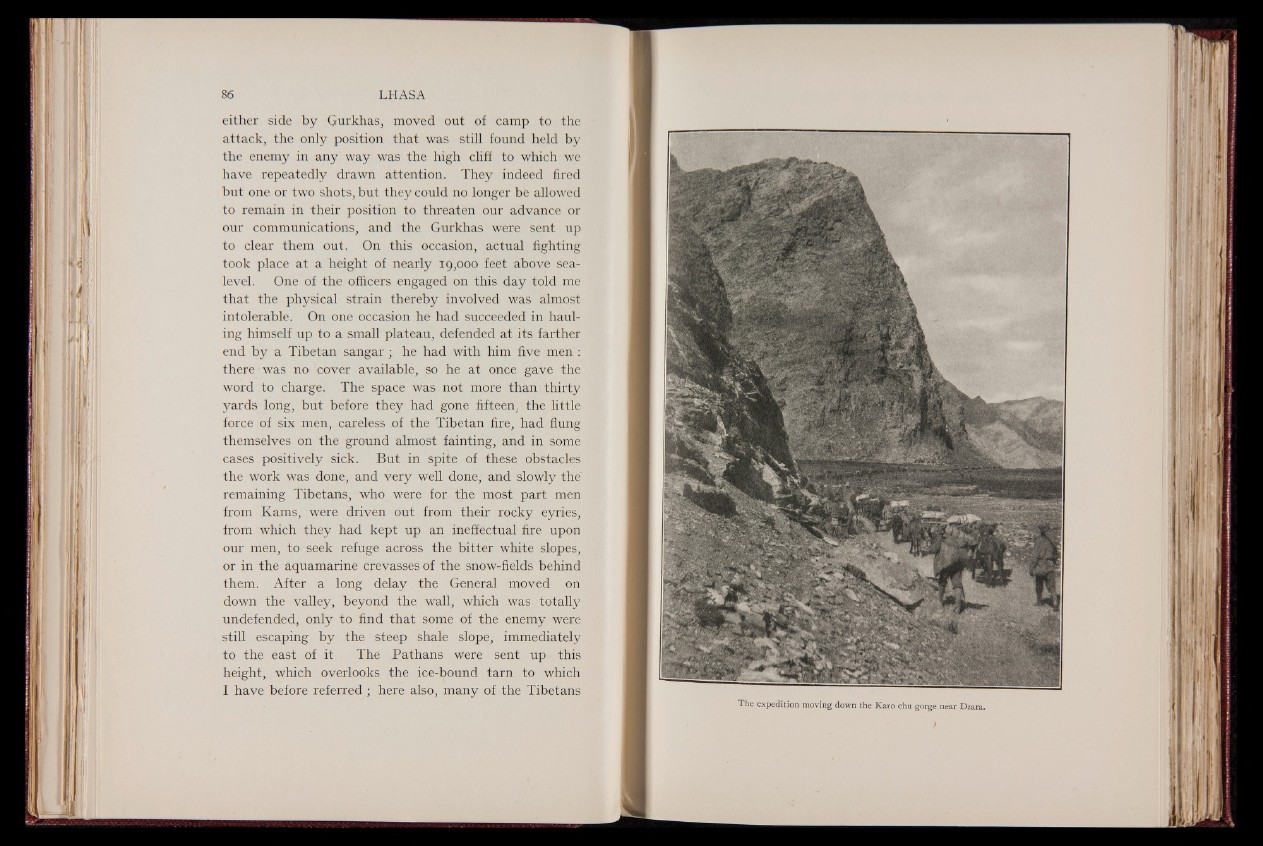
either side by Gurkhas, moved out of camp to the
attack, the only position that was still found held by
the enemy in any way was the high cliff to which we
have repeatedly drawn attention. They indeed fired
but one or two shots, but they could no longer be allowed
to remain in their position to threaten our advance or
our communications, and the Gurkhas were sent up
to clear them out. On this occasion, actual fighting
took place at a height of nearly 19,000 feet above sea-
level. One of the officers engaged on this day told me
that the physical strain thereby involved was almost
intolerable. On one occasion he had succeeded in hauling
himself up to a small plateau, defended at its farther
end by a Tibetan sangar ; he had with him five men :
there was no cover available, so he at once gave the
word to charge. The space was not more than thirty
yards long, but before they had gone fifteen, the little
force of six men, careless of the Tibetan fire, had flung
themselves on the ground almost fainting, and in some
cases positively sick. But in spite of these obstacles
the work was done, and very well done, and slowly the'
remaining Tibetans, who were for the most part men
from Kams, were driven out from their rocky eyries,
from which they had kept up an ineffectual fire upon
our men, to seek refuge across the bitter white slopes,
or in the aquamarine crevasses of the snow-fields behind
them. After a long delay the General moved on
down the valley, beyond the wall, which was totally
undefended, only to find that some of the enemy were
still escaping by the steep shale slope, immediately
to the east of it The Pathans were sent up this
height, which overlooks the ice-bound tarn to which
I have before referred ; here also, many of the Tibetans